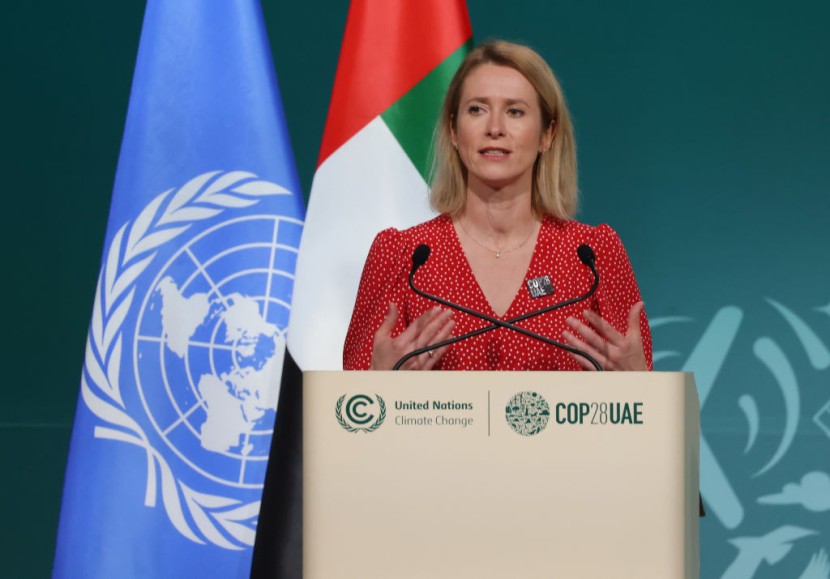Against the backdrop of heightened tensions between Russia and the West amid the conflict in Ukraine, Estonia's Prime Minister has been added to Russia's wanted list. The move comes on the heels of efforts to remove Soviet-era World War II monuments in the Baltic nation, officials revealed on Tuesday.

According to an article published by The Associated Press, the name of Prime Minister Kaja Kallas appeared on the Russian Interior Ministry's list of people wanted on unspecified criminal charges.
While independent Russian news outlet Mediazona first reported that Kallas was on the list, it claims she has been for a while. The list also includes scores of officials and lawmakers from other Baltic nations.
Estonia and fellow NATO members Latvia and Lithuania have pulled down monuments that are widely seen as an unwanted legacy of the Soviet occupation of those countries.
In the wake of Russia's full-scale invasion of Ukraine almost two years ago, both Poland and the Czech Republic have seen the removal of several monuments dedicated to Red Army soldiers.
Moscow has denounced those moves as a desecration of the memory of Soviet soldiers who fell while fighting Nazi Germany.
Reuters quoted Kallas from a post on social media platform X, "The Kremlin now hopes this move will help to silence me and others - but it won't."
"I will continue my strong support to Ukraine. I will continue to stand for increasing Europe's defense," she said, adding Russia's move was not a surprise.
In response, the head of the Russian Investigative Committee, Alexander Bastrykin, ordered a criminal investigation into the matter.
Russian Foreign Ministry spokeswoman Maria Zakharova said: "This is only the beginning."
"Crimes against the memory of the world's liberators from Nazism and fascism must be prosecuted," she said.
What About The Other Baltic States?
Baltic politicians risk being placed under arrest only if they cross the Russian border, otherwise declaring them as "wanted" is unlikely to have any practical consequence.
In addition to Kallas, Estonian State Secretary Taimar Peterkop, Lithuanian Culture Minister Simonas Kairys, and about 60 of the 100 members of the previous Latvian parliament, which ended its term in November 2022, were put on the list, according to the ministry database.
Kairys told Reuters the arrest order "means I acted actively and in a principled way."
In 1940, the Baltic states were annexed by the Soviet Union, endured occupation by Nazi Germany, and then reverted to Moscow's rule within the Soviet Communist bloc. Independence was reestablished in 1991 with the collapse of the Soviet Union.
All three are members of the European Union and NATO, and their relations with Moscow have worsened deeply since the start of the war.
Several dozen other Baltic politicians were also added to the Russian wanted list, including mayors, municipal deputies, and the former Latvian interior minister, Marija Golubeva, reported Reuters.
© 2026 HNGN, All rights reserved. Do not reproduce without permission.









